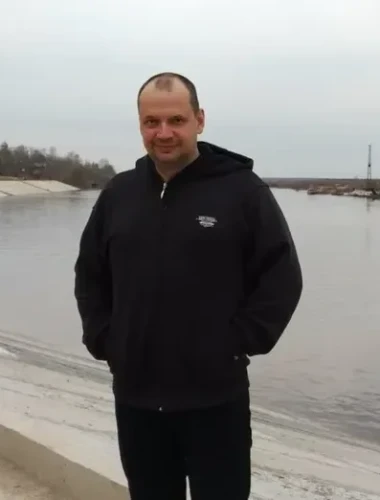Yury Orlov is a political prisoner
A pension fund employee from Komi has been sentenced to three years in a penal colony for two social media comments – one of which was written in 2021
The ‘Political Prisoners. Memorial’ human rights project, in accordance with international standards, considers Yury Orlov a political prisoner. Orlov was convicted on a charge of making public calls to engage in terrorism for posting critical comments about politicians on social media. Orlov’s prosecution and conviction violated his rights to freedom of expression and fair trial. We demand the immediate release of Yury Orlov and that all criminal charges against him be dropped.
What were the charges against Yury Orlov?
In July 2023, Yury Orlov, a resident of Syktyvkar and an employee of the Pension and Social Insurance Fund, was fined on an administrative-law charge of ‘discrediting’ the army for an anti-war comment. However, the Supreme Court of Komi overturned the ruling, citing multiple procedural violations.
Following this, the FSB investigated some of Orlov’s other online comments. Two of these were classified as ‘public calls to engage in terrorism’ (Article 205.2, Part 2, of the Russian Criminal Code). The first was posted in September 2021, shortly after the State Duma elections, when he allegedly wrote, referring to the then head of the region and to a candidate from the United Russia party, ‘Uiba and Sevastyanova – into the furnace.’ The second appeared in a Telegram chat in May 2022 and read, ‘Volodin must be hanged right after Putin.’
Orlov was detained in September 2024, interrogated and released under travel restrictions. On 20 December 2024, Orlov’s trial ended with a guilty verdict, and he was sentenced to three years in a general regime penal colony to be followed by a two-year ban on administering internet sites. He was taken into custody in the courtroom.
Why do we consider Yury Orlov a political prisoner?
Yury Orlov was prosecuted and convicted for expressing an opinion. Both his comments were rhetorical and emotional in nature. Neither posed any danger to the public and could not be interpreted as calls to commit terrorism.
Yury Orlov was not calling on anyone to commit acts of violence against the politicians to whom he referred; he was expressing a negative view of them. The phrase ‘into the furnace’ in internet slang generally indicates rejection or indifference. To claim it amounts to a literal call to burn someone is absurd. The statement ‘Volodin must be hanged right after Putin’ is, in our view, a figurative expression of extreme disapproval. Moreover, the statement could be interpreted as a call for a just assessment of the actions of war criminals, since hanging is associated with execution on the order of a court.
To interpret such phrases literally as calls to violence and to prosecute their author on that basis is unjustifiable. Indeed, even if Orlov’s words had amounted to calls for violence, the actual danger posed by a comment by an ordinary internet user, in the stream of discussion of current events, is negligible and should not result in a custodial sentence.
A detailed description of Yury Orlov’s case and of our position is available on our website.
Recognition of an individual as a political prisoner does not imply the project, ‘Political Prisoners. Memorial,’ agrees with, or approves, their views, statements, or actions.
How can you help?
You can write to Yury Orlov at the following address:
RU: 628606, ХМАО — Югра, г. Нижневартовск, п. Северный, ФКУ ИК-15 УФСИН России по Ханты-Мансийскому АО, Орлов Юрий Владимирович, 1971 г. р.
EN: Yury Vladimirovich Orlov (born 1971), Penal Colony No. 15, Federal Penitentiary Service of Russia for Khanty-Mansi Autonomous Okrug, Severny settlement, Nizhnevartovsk, Khanty-Mansi Autonomous Okrug, 628606, Russia.
You can also send an email using ZT (for payment with all bank cards), OVD-Info and Memorial-France (free of charge).
Please note that letters in languages other than Russian are highly unlikely to reach the intended recipient.
You can donate to help all political prisoners in Russia.
